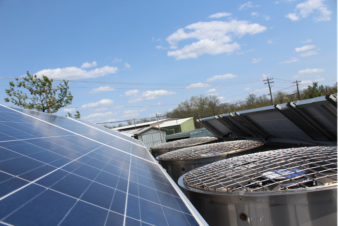Atlanta — Underscoring their commitment to improving the efficiency use of energy, ASHRAE and the U.S. Department of Energy (DOE) have renewed a memorandum of understanding.
The agreement was signed by ASHRAE President Tom Phoenix and David Danielson, assistant secretary, Energy Efficiency and Renewable Energy, DOE. It represents an update of an agreement last signed in 2011.
Together ASHRAE and the DOE agree to further their long-term relationship by working cooperatively to improve the efficient use of energy, improve the visible and widespread use of renewable energy sources and to minimize the impact of energy use on the environment.
“By renewing our memorandum of understanding, ASHRAE and DOE pledge to combine our collective energy conservation efforts,” Phoenix said. “Our continued work with DOE will allow us to improve on our efforts in achieving substantial energy savings without sacrificing comfort, air quality or productivity.”
ASHRAE and the DOE are committed to working together toward the following goals:
• Encourage the continued development of standards related to energy efficiency.
• For each succeeding version of Standard 90.1, Energy Standard for Buildings Except Low-Rise Residential Buildings, seek adoption of all technologically feasible and economically justified energy efficiency measures.
• Promote and support the use of Standard 90.1 and other relevant standards through training programs, including self-directed learning, building interaction and ASHRAE chapter-oriented training.
• Encourage adoption of Standard 90.1 in building codes and in the International Standards Organization (ISO) standards where positive determinations have been issued.
• Encourage advanced energy design guidance concepts, such as 50% Advanced Energy Design Guides.
• Collaborate in the development and implementation of next-generation refrigerants that achieve low global warming potential targets and concurrently improve equipment energy efficiency.
• Cooperate to provide and encourage the use of clear and consistent information to the building industry about building energy rating and labeling.
•v Cooperate to support the Better Buildings Initiative through such activities as the Better Buildings Alliance and the Better Buildings Case Competition.
• Work within the building community and related professions to encourage the interoperability of building related software and integrated solutions to increase energy efficiency, health, and productivity in new and existing buildings.




Join the conversation: